By Alex Bull - Expert Content Writer for the Automotive Industry
Are you considering purchasing an electric vehicle or already own one? If so, one of the most important decisions you'll need to make is how and where to charge your vehicle. While public charging stations are becoming more common, they can be inconvenient and expensive. That's where home EV chargers come in.
If you're looking for a home EV charger that offers versatility, adaptability, and smart technology, look no further than the Topdon PulseQ AC Home EV Charger.
As Topdon's first EV charging station, the PulseQ is designed to make EV charging widely accessible to all. With an interface that can be accessed and adjusted through an app, you can easily set charging sessions during off-hours and monitor the battery's charging process from anywhere.
In this blog post, we'll explore the best features of home EV chargers, including the convenience, speed, cost savings, smart features, compatibility, and environmental benefits. We'll also highlight the unique features of the Topdon PulseQ AC Home EV Charger and how it can make owning an electric vehicle even more convenient and enjoyable.
Versatility and Adaptability
One of the best features of Topdon's PulseQ AC Home EV Charger is its versatility and adaptability. The charging station can be installed in a variety of locations, including a garage, carport, or driveway. It can also be used with a wide range of electric vehicles, including both standard and fast-charging models.
In addition to its versatility, the PulseQ offers smart technology that makes EV charging even more convenient. The charger's interface can be accessed and adjusted through an app, allowing you to set charging sessions during off-hours and monitor the battery's charging process from anywhere.
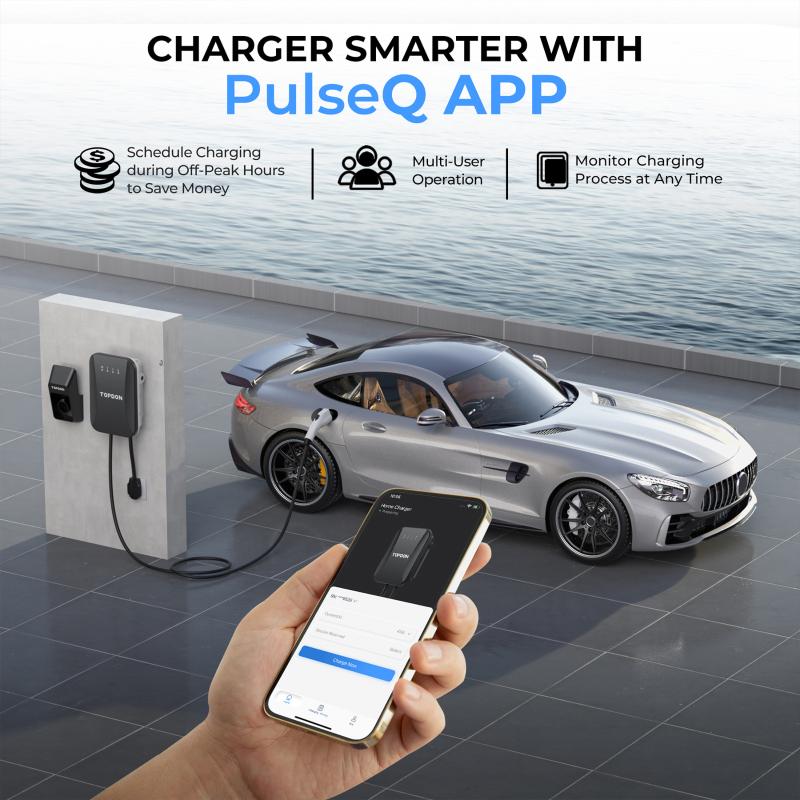
The PulseQ also offers fast charging speeds, with Level 2 charging capabilities that can charge an electric vehicle up to six times faster than a standard Level 1 charger. This means you can spend less time waiting for your vehicle to charge and more time enjoying the open road.
Overall, Topdon's PulseQ AC Home EV Charger offers a range of features that make it a top choice for electric vehicle owners. Whether you're looking for versatility, adaptability, smart technology, fast charging speeds, or all of the above, the PulseQ has you covered.
Charging Speed
When it comes to charging an electric vehicle at home, charging speed is a crucial factor to consider. The speed at which a home EV charger can charge your electric vehicle can significantly impact its usability. Topdon's PulseQ AC Home EV Charger is a Level 2 charger, which means it can provide faster charging than a Level 1 charger. A Level 1 charger can take up to 20 hours to fully charge an electric vehicle, while a Level 2 charger like the PulseQ can charge the same vehicle in just a few hours.
With the PulseQ's adjustable current range from 6 to 40A, you can select a charging speed that suits your needs. The PulseQ's 16.4 ft rugged charging cable made of PVC and copper can accommodate up to 40A, which allows maximum flexibility in use (25ft extendable option). This feature is beneficial, especially when you need to charge your vehicle quickly.
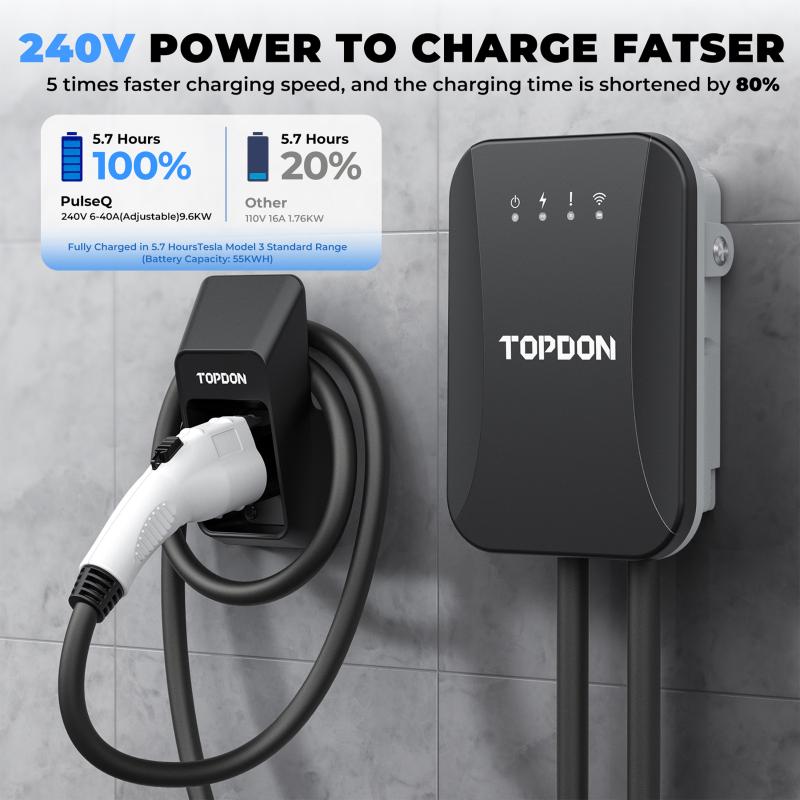
Faster charging speeds mean less time spent waiting for your vehicle to charge, making it more convenient and efficient to use. With Topdon's PulseQ AC Home EV Charger, you can enjoy fast and reliable charging in the comfort of your home.
Compatibility
When choosing a home EV charger, it's essential to consider the compatibility of the charger with your specific electric vehicle. Different types of electric vehicles may require different types of chargers due to differences in charging ports and electrical systems. Fortunately, Topdon's PulseQ EV Charger is compatible with most electric vehicles on the road, as it features an SAE J1772 (TYPE1)* and IEC62196-2 (Type 2)* connector that is commonly used by many electric vehicle manufacturers.
Tips:
SEA J1772 (TYPE 1) is widely used in the United States, Japan, and Korean.
IEC61851 (TYPE 2) is commonly used in Europe;
Topdon's EV charger is available in American, European and China versions to meet the needs of different regions, which should be noted when choosing.
In addition, Topdon's PulseQ EV Charger is equipped with an adjustable current range of 6 to 40A, allowing it to cater to different charging needs and speeds. This makes it a versatile choice for electric vehicle owners with varying charging requirements.
Tips:
There is a formula for calculating charging speed by which you can calculate how long it will take your car to charge fully: Charging speed = voltage * current
For example, at 220V voltage, we charge the car with a current of 16A, which is 220*16= 3.5kwh. It means we charge the electric vehicle with 3.5kWh in one hour.
If you charge your car at 40A, that's 240*40=8.8kWh or 9.6kwh in an hour. And you can control the charging speed by adjusting the current.
To determine the compatibility of a home EV charger with your electric vehicle, it's important to check the charging port type and charging specifications of your vehicle. Most electric vehicle manufacturers provide this information in their owner's manual or on their website. Alternatively, you can consult with an electrician or a charging station installer to ensure that you choose a charger that is compatible with your electric vehicle.
Environmental Benefits
Owning an electric vehicle and charging it at home offers numerous environmental benefits. Compared to gas-powered vehicles, electric vehicles produce lower emissions and contribute less to air pollution. Additionally, charging at home with renewable energy sources, such as solar or wind power, can further reduce the environmental impact of charging. By reducing greenhouse gas emissions and promoting cleaner air, electric vehicles and home charging stations are crucial in the fight against climate change.
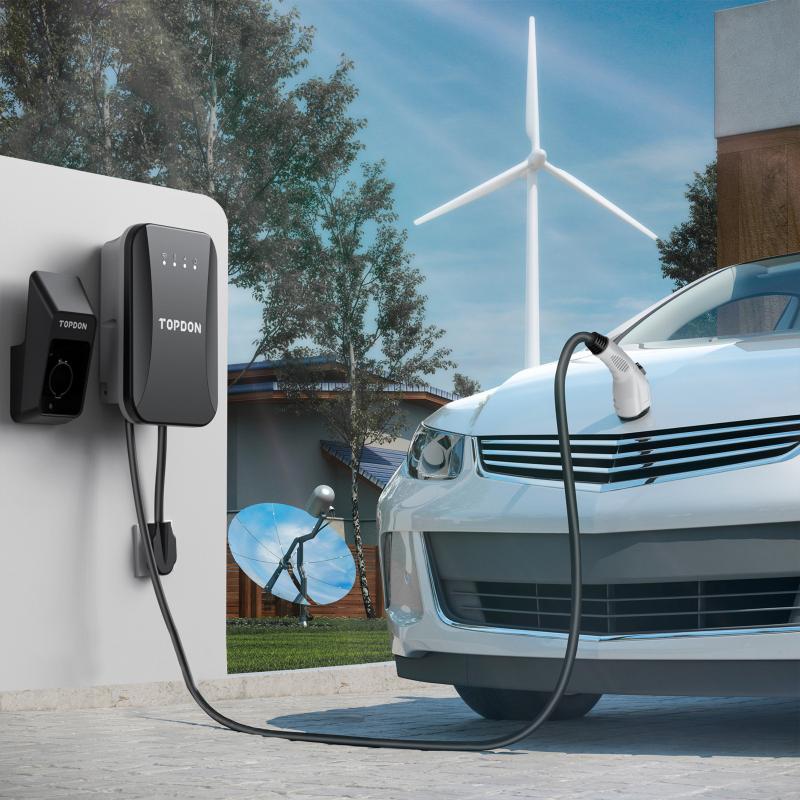
Saves You Money
Owning and operating an electric vehicle can also save money compared to traditional gasoline-powered vehicles. Although the initial cost of purchasing an electric vehicle may be higher, the long-term operating costs are significantly lower. This is due to lower fuel costs, reduced maintenance requirements, and potential tax incentives.
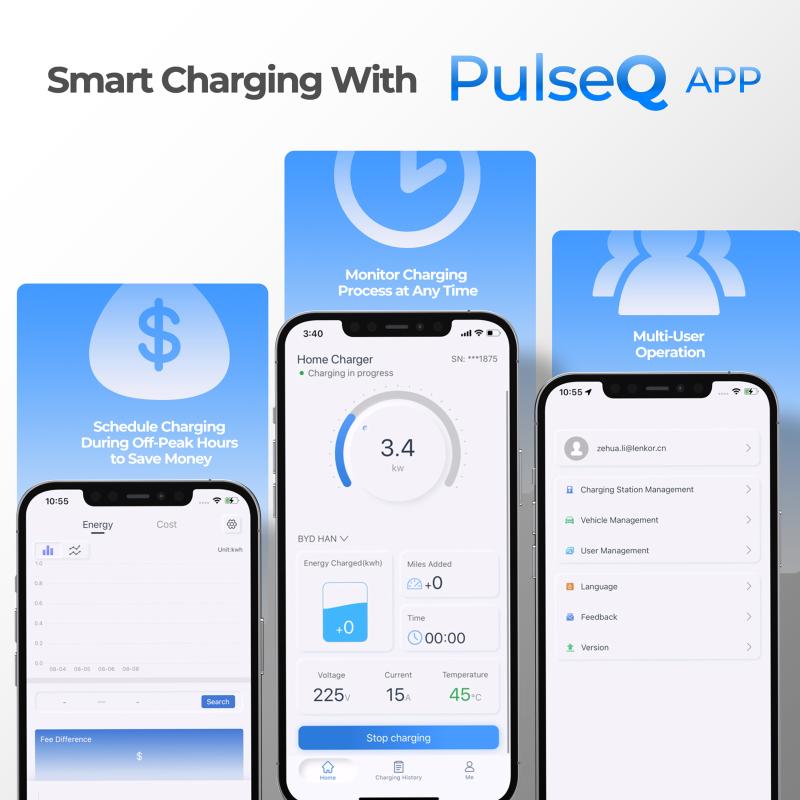
Additionally, electric vehicles are exempt from many of the taxes and fees that are typically associated with traditional gasoline-powered vehicles, providing even more cost savings. Overall, the Topdon EV charger is a smart investment for electric vehicle owners looking to save money on charging costs and reduce their overall operating expenses.
Conclusion
A home EV charger is an essential investment for any electric vehicle owner. Topdon's EV charger provides a range of features, including fast charging, user-friendly mobile app, and compatibility with most electric vehicles on the market. It offers a cost-effective and environmentally friendly way to charge your electric vehicle from the comfort of your own home. By investing in a home EV charger, you can save time and money, reduce your carbon footprint, and contribute to a sustainable future.

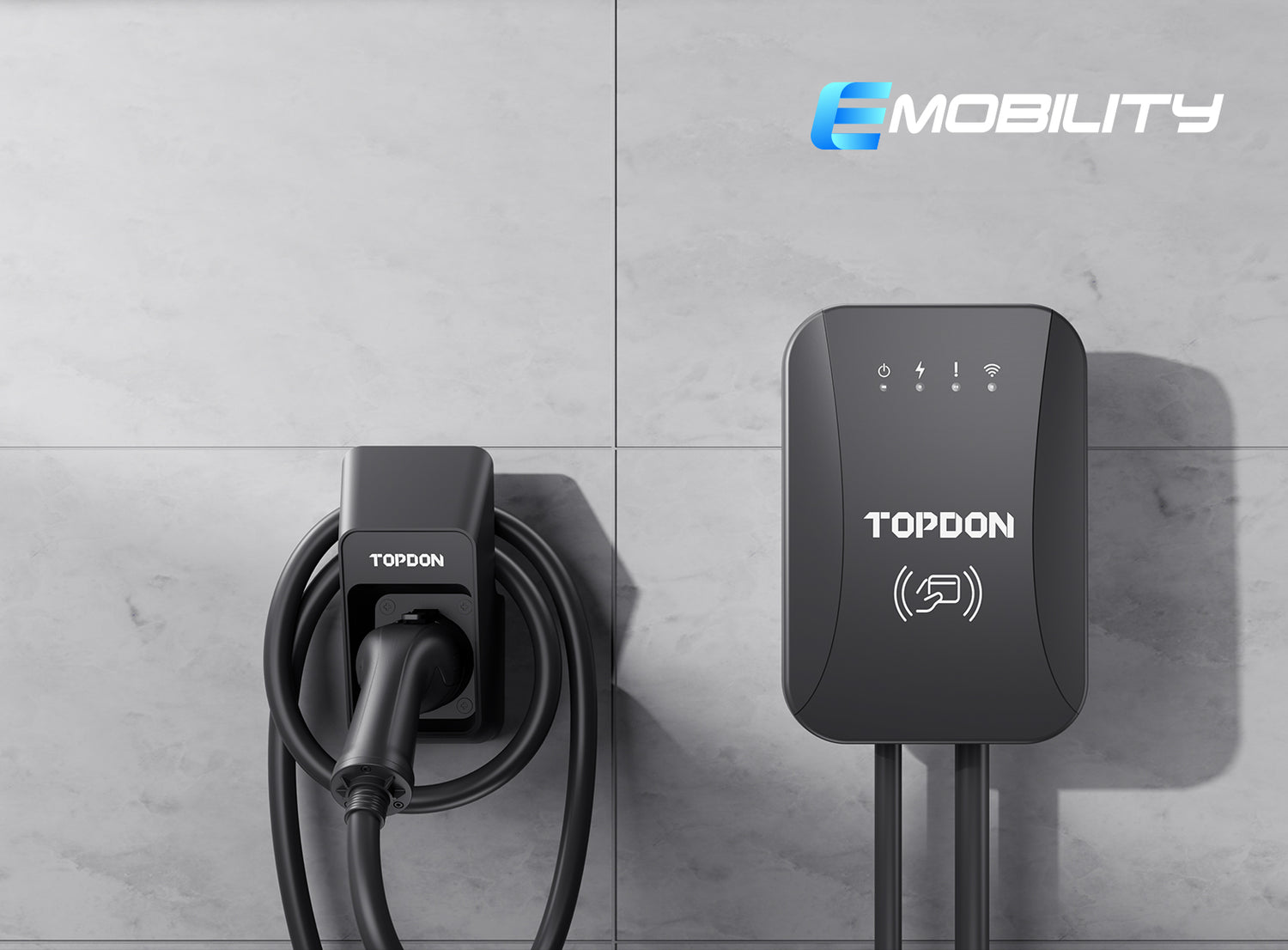
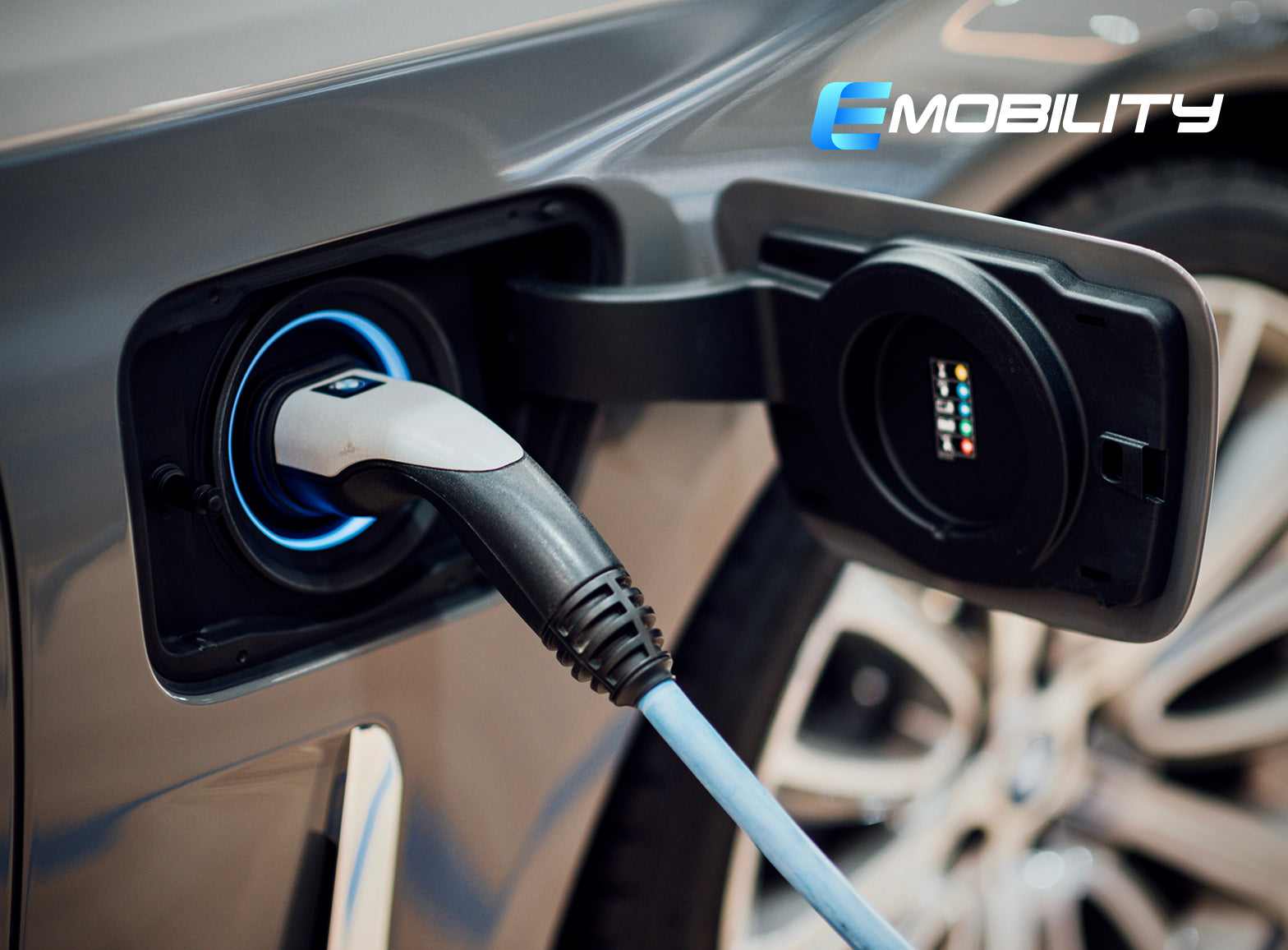
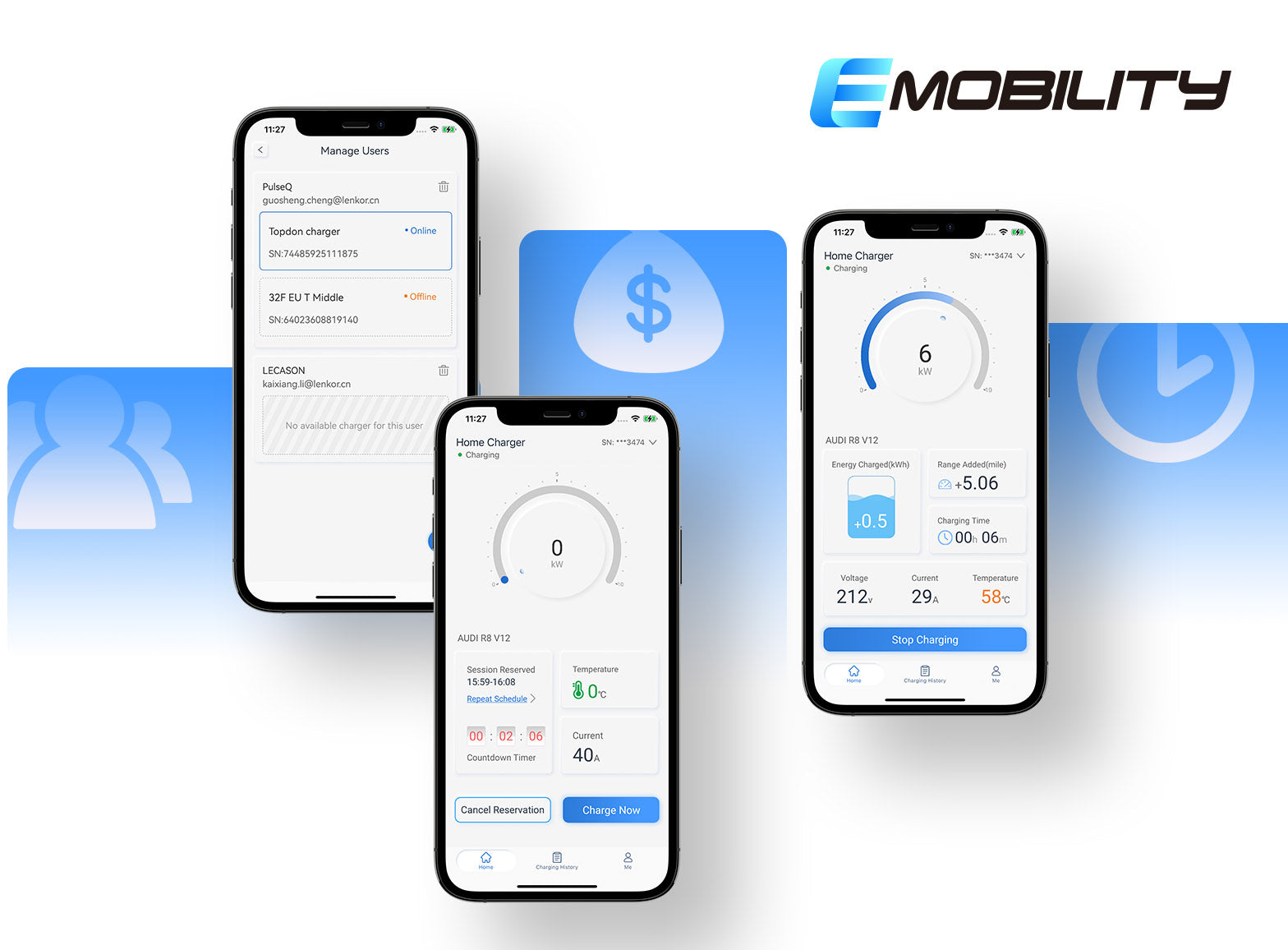
1 comment
Jo
Great product!
Leave a comment
This site is protected by hCaptcha and the hCaptcha Privacy Policy and Terms of Service apply.